There have been three baronetcies created for descendants of the ancient Lancashire family of Gerard.

There have been ten baronetcies created for persons with the surname Browne, six in the Baronetage of Great Britain, three in the Baronetage of Ireland and one in the Baronetage of Nova Scotia. Only one creation is extant as of 2010. Three of the creations were for members of the Browne family headed by the Viscount Montagu.
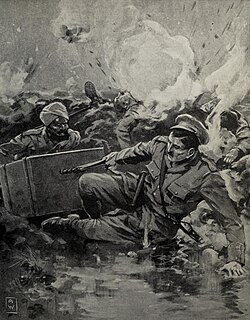
There have been six baronetcies created for persons with the surname Smyth, two in the Baronetage of England, one in the Baronetage of Great Britain, one in the Baronetage of Ireland and two in the Baronetage of the United Kingdom. One creation is extant as of 2010.
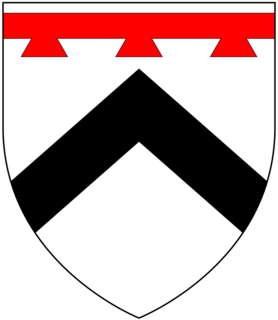
Prideaux is a surname of Cornish origin derived from the place called Prideaux in the parish of Luxulyan. The place-name had the form Pridias in the 12th and 13th centuries; however by folk etymology both the place-name and the surname have been altered to a form based on the French près d'eaux or pré d'eaux.

There have been two Baronetcies created for persons with the surname Allin, both in the Baronetage of England. Both creations are extinct.
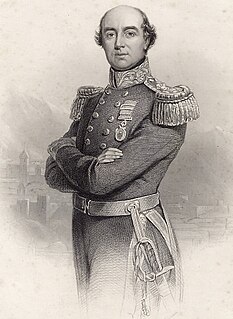
There have been twenty one baronetcies created for persons with the surname Williams, eight in the Baronetage of England, three in the Baronetage of Great Britain and ten in the Baronetage of the United Kingdom. Only six of the creations are extant as of 2017.

Edmund Prideaux of Forde Abbey, Thorncombe, Devon, was an English lawyer and Member of Parliament, who supported the Parliamentary cause during the Civil War. He was briefly solicitor-general but chose to resign rather than participate in the regicide of King Charles I. Afterwards, he was attorney-general, a position he held until he died. During the Civil War and for most of the First Commonwealth he ran the postal service for Parliament.
There have been three baronetcies created for persons with the surname Pole, one in the Baronetage of England, one in the Baronetage of Great Britain and one in the Baronetage of the United Kingdom. Two of the creations are extant as of 2008.

There have been three Baronetcies created for persons with the surname Seymour, two in the Baronetage of England and one in the Baronetage of the United Kingdom. One creation is extant as of 2008.

There have been four baronetcies created for people with the surname Drake, three in the Baronetage of England and one in the Baronetage of Great Britain.
There have been two baronetcies created for members of the Reade family, both in the Baronetage of England. Both creations are now extinct.
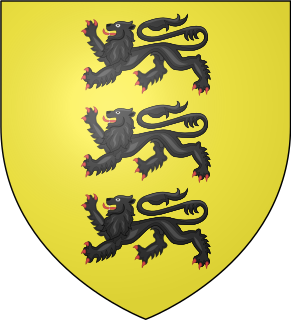
There have been three baronetcies created for persons with the surname Carew, two in the Baronetage of England prior to 1707, one in the Baronetage of Great Britain.

Farway is a small village, civil parish and former manor in the East Devon district of Devon, England. The village is situated about 3+1⁄2 miles (5.6 km) south-east of Honiton. The village lies on the River Coly, which rises in the north of the civil parish and which is crossed by a ford in the village.
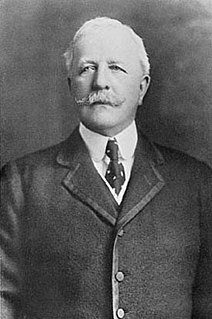
There have been three baronetcies created for persons with the surname Meredith, one in the Baronetage of England, one in the Baronetage of Nova Scotia and one in the Baronetage of the United Kingdom. Two of the creations are extinct while one is dormant.
Sir Thomas Chamberlayne, 2nd Baronet of Wickham and of Northbrooke, Oxfordshire,was the son of Sir Thomas Chamberlayne, 1st Baronet, and probably inherited the baronetcy on the death of his father on 6 October 1643. The title being void under the Act of Parliament then in force, on 6 October 1657 he accepted another baronetcy from the Lord Protector Oliver Cromwell, to whose Attorney General, Edmund Prideaux he was son-in-law. This creation became invalid after the Restoration, while his previous one was reinstated. He died late September or early November 1682. The baronetcy passed to James Chamberlayne, 3rd Baronet.
Edmund Prideaux (1634–1702) was a member of Parliament for the constituency of Taunton. He took part in Monmouth's rebellion, and bribed Judge Jeffreys heavily to save his life.

Sir Edmund Prideaux, 1st Baronet (1554–1628), of Netherton in the parish of Farway, Devon, was a Councellor at Law and Double Reader of the Inner Temple and was created a baronet on 17 July 1622. He purchased the estate of Netherton where in 1607 he built a new mansion house, known today as Netherton Hall, a grade II listed building. He was one of John Prince's Worthies of Devon.

Sir William Drake, 4th Baronet (1658–1716), of Mount Drake, and Ashe House, Musbury, Devon, was an English Tory politician who sat in the English and British House of Commons from 1690 to 1715.
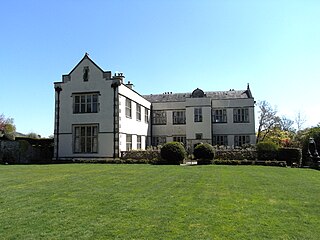
Netherton in the parish of Farway in Devon is an historic estate situated about 3 1/2 miles south-east of Honiton. The present mansion house known as Netherton Hall was built in 1607 in the Jacobean style, restored and rebuilt 1836-44, and is a Grade II listed building.

Sir Edmund Prideaux, 4th Baronet (1647–1720), of Netherton, Farway was a British lawyer and politician who sat in the House of Commons from 1713 to 1720.













